Researching Ancient Egypt
Today, using key word searches and our scanning and skimming skills, we have been researching some different areas of Ancient Egyptian life.

World History topic
This week marks the beginning of our latest topic: World History. In this topic, children will be learning about one of three civilisations: Benin, Ancient Islamic and Maya.
Today, we had a ‘taster’ session of each civilisation and found out lots of things we never knew:
- Did you know that the Mayans may have invented basketball?
- Or, did you know that the Ancient Islamic Civilisation were inventing machines that may have helped humans to fly thousands of years before the Wright brothers?
Children will now complete an independent research task to create a fact-filled project board about a civilisation of their choice whilst focusing on skills related to the foundation subject age-related expectations for Year 5 and Year 6.
It might look something like this:
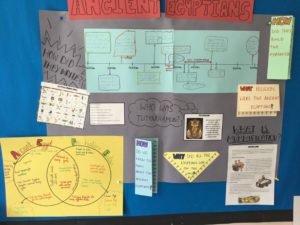
You could help at home by:
- asking your child to think about the pros and cons for researching each civilisation
- spending time researching their chosen civilisation with them (using a range of reliable sources – not just Google!)
- encouraging them to carry out independent research
- discussing the importance of using reliable (and appropriate) sources when researching
School Saving Accounts
Our next paying in session for children with School Saving Accounts is this week.
- Wednesday 22 June 3.15pm

You’re welcome to accompany your child to pay in their money. If you can’t come, or maybe your child is at an after-school club, you can bring money to the office in a sealed envelope marked ‘School Saving Account’ with your child’s paying in card and this will be deposited into their account.
Also, it’s not too late to open an account. Please ask at the office for an application form.
The next paying in session this term is Wednesday 20 July 3.15pm.
17 June 2016
The homework this week is practice makes perfect and is due in on Wednesday 22 June.
I can create a chart to present data.
You’ve been given some information in a tally chart – though you can use your own data if you’d prefer.
Your job is to create a bar chart (or another type of chart) using this data. Remember all that we’ve learnt this week!
Once you’ve created the chart, write some questions about the data for other people to answer.
17 June 2016
The spellings this week are again for all Year 2 children.

Money Matters Homework
We tried to choose a few pieces of homework to show off on our class news but we ended up choosing all of these.
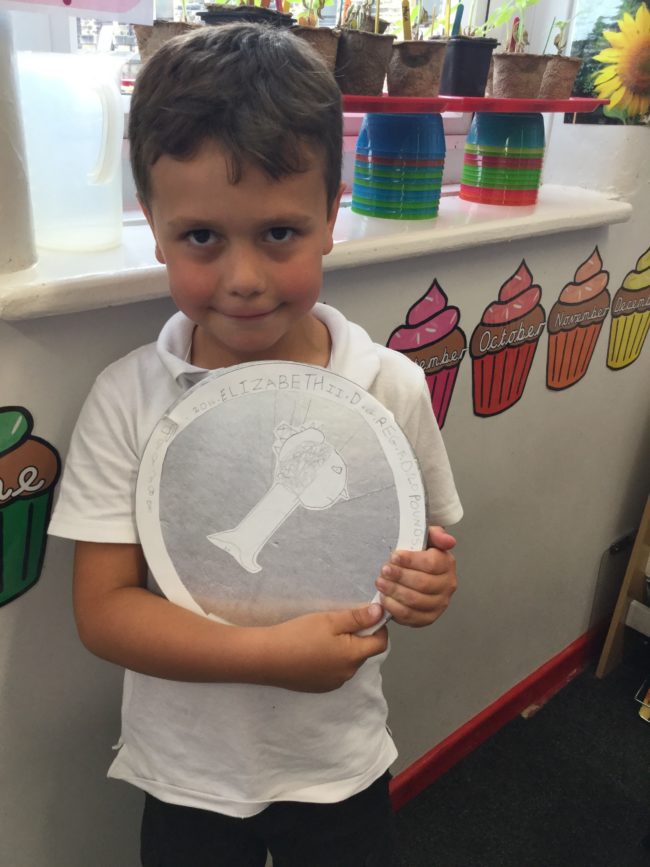
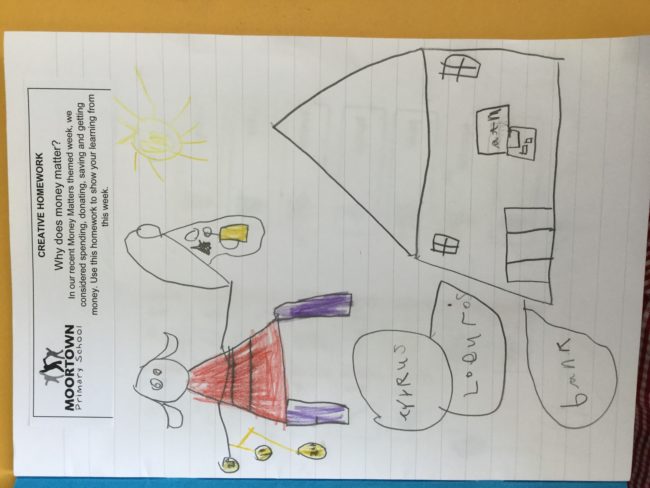
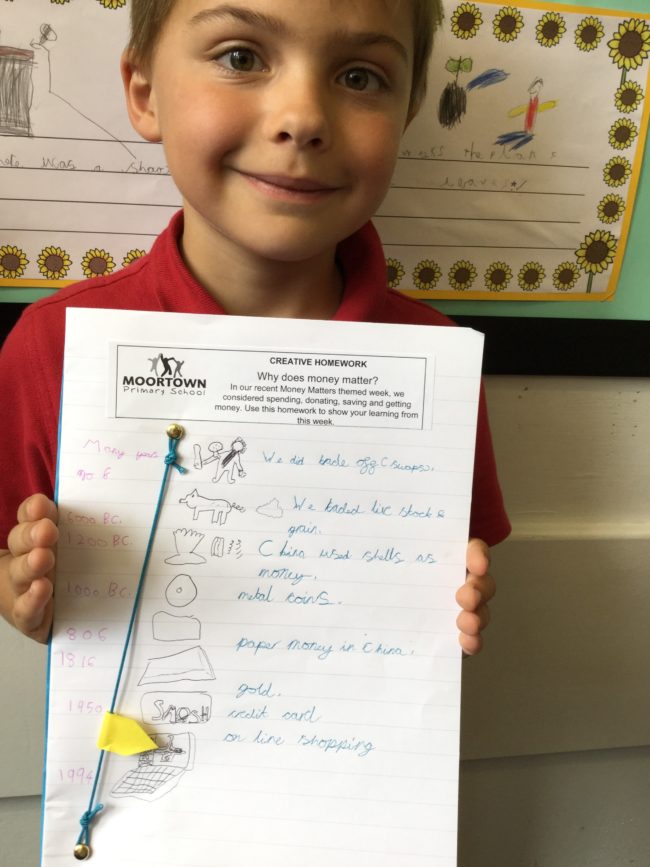
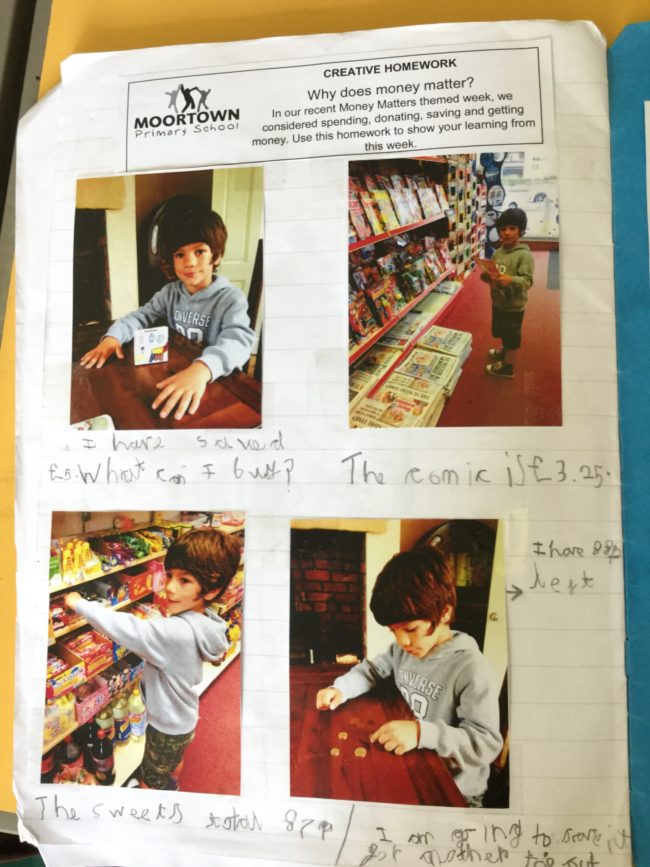
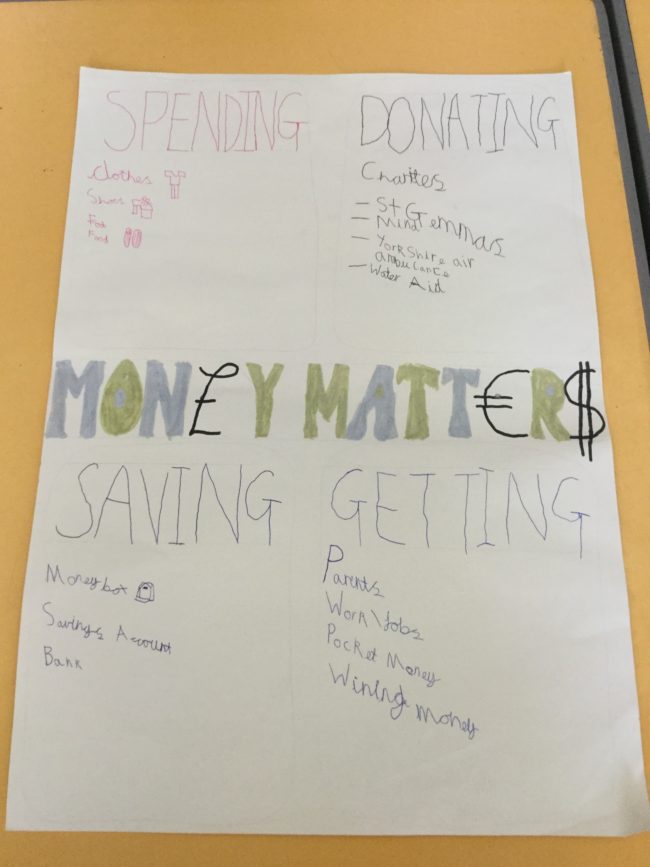
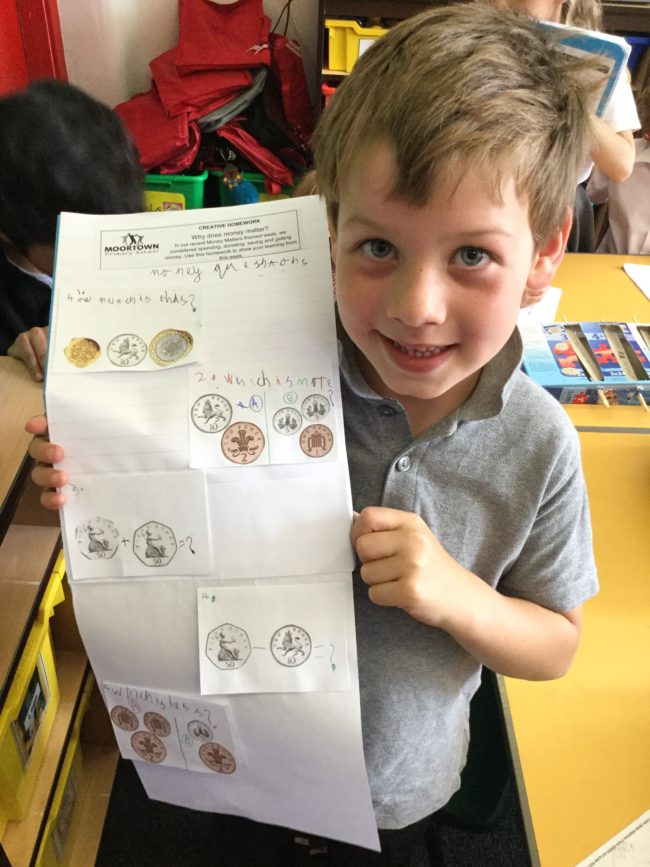
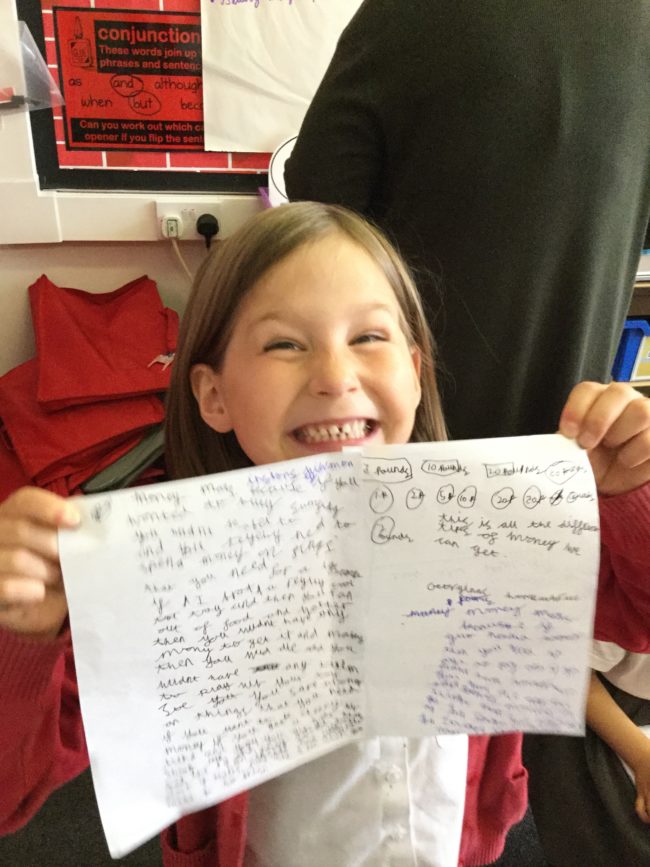
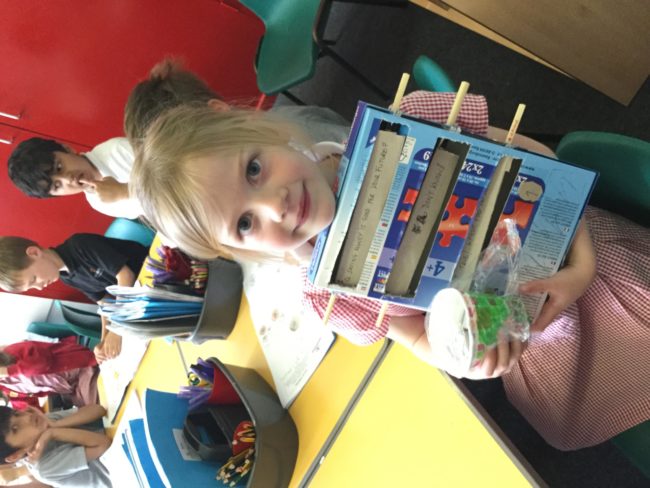
17 June 2016
Red and yellow group:
are
come
here
said
some
there
were
where
These are more words where phonics doesn’t help a whole lot to spell them. Please help your child to hear and understand the difference between where and were.
Green group:
I will ask you any ten spellings of the days of the week and the months of the year.
17 June 2016
The homework for this week is practice is perfect and is due in on Wednesday 22 May.
Complete the sudoku puzzle!
You might need an adult to help you at first. Enjoy!
17 June 2016
This week’s homework is practice makes perfect and is due on 22 June 2016.
I can apply my shape learning.
This week, your child has a series of opportunities to practise and apply their shape learning from this week. Some of the key vocabulary you should expect to here/use is:
vertex / vertices – the corner of a shape
right angle – a 90 degree angle (a square fits perfectly into it)
parallel – lines which stay the same distance apart
perpendicular – two lines that meet at a right angle
angle – a measure of a turn / a vertex
greater than 90 degrees – a turn that is more than 90 degrees
less than 90 degrees – a turn that is less than 90 degrees
Warning!
An angle is only an angle when two straight lines meet. If a curved line meets a straight line it is not strictly an angle.
17 June 2016
This week’s spellings have come about as a result of all the spelling learning we have done around the letter w.
wait
weight
went
where
were
woman
women
weather
whether
wrong
There are some homophones (two words that sound the same but are spelt differently), an irregular plural and some high frequency words that are commonly spelt wrong. Why not try encouraging your child to spot words within words to help memorise spellings (the response to “where?” could be “here!”)?